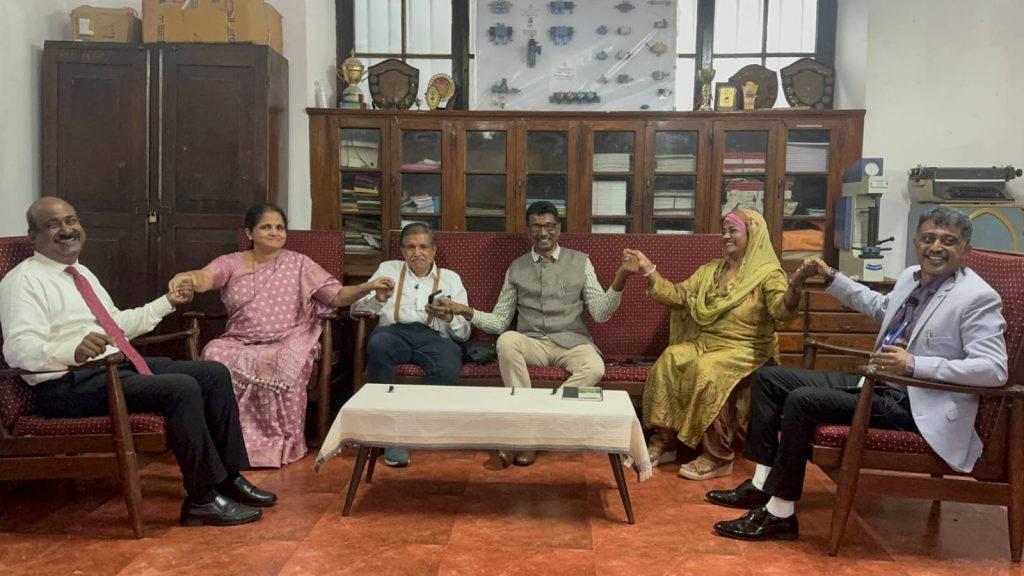The SALT Magic: Transform Your Life | Concentration | Communication | Connection | Celebration | Steps: Start Now | Appreciate Positives | Link People | Team Up
NV Paulose, Chairman, Global TV +91 98441 82044
Have you ever felt stuck in your life? Do you want to be more successful and happy? There is a simple way to change your life. It is called The SALT Magic.

Think about salt. Salt is a simple ingredient, but it brings out the best taste in any food. It also unites people, as every home shares salt and food. In the same way, The SALT Magic is a simple method to bring out the best in you with the art of teamwork. Start, Appreciate, Link and Team up are the components of the SALT Magic. It begins with S – Start with Concentration. Dedicate one hour a week for self-improvement. Learn to Appreciate yourself and others. Link people for a purpose. Team Up for greater purposes. Be part of the goal to Celebrate Hunger Free Day in our district.

The four steps are Concentration, Communication, Connection, and Celebration. You only need one hour each week to practice them. This is how it works.
Step 1: Concentration
Practice Concentration exercise in a team of 5. Pick a good memory and activate your 5 senses around that good memory. Close your eyes and See that Memory vivid and clear. Activate your senses (Seeing, hearing, Feeling, Tasting & Smelling) and check your concentration on a scale of 0 to 10.
Concentration practice makes your mind strong. A strong mind is the first ingredient for a better life, just like salt is the first ingredient in a tasty meal.
Step 2: Communication
Next, practice how you talk and listen. Good communication is not just about speaking. It is about listening to understand. This skill will help you at work and with your family. It helps people understand you better. It opens new doors for you. Practice Listening and Speaking on a regular basis.
Step 3: Connection
Then, focus on building real relationships. Connect people who can help you grow. Also connect people whom you can help. Talk to people with kindness. Understand their feelings. Help them when you can. Strong connections with others make you stronger. These people will support you. You will support them. We grow better when we grow together. This connection unites us, just like salt brings different flavors together in one dish.
Step 4: Celebration
Finally, take time to celebrate. Be happy about your progress, even the small wins.
True celebration is an opportunity to come together. Coming together for a purpose is a great success. This will make our celebration meaningful. What if our purpose was a Hunger Free Day for our entire district? We could use our collective power to ensure that for one day, no one in our district goes to sleep hungry. We could share food, resources, and kindness. This is the SALT magic. Uniting people to their native places to make life better for everyone.

A Promise to Help Others
The SALT Magic is about giving and taking. We give you this method to transform your life. In return, we ask you to help others. Please join us in supporting people who need it. Share the goodness you have. When you become successful, you can help others succeed too.
Your transformation starts with one hour a week. Practice the four steps of The SALT Magic. You will see your life change for the better. And you will help make the world a better place too.





